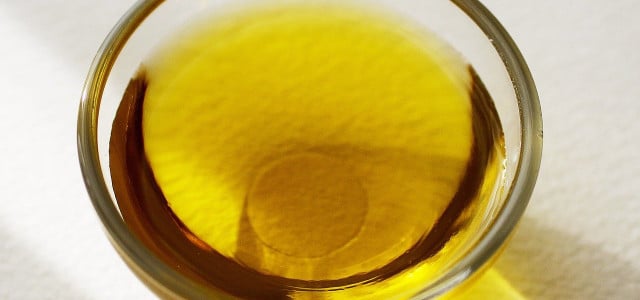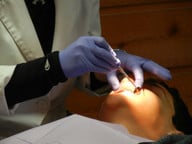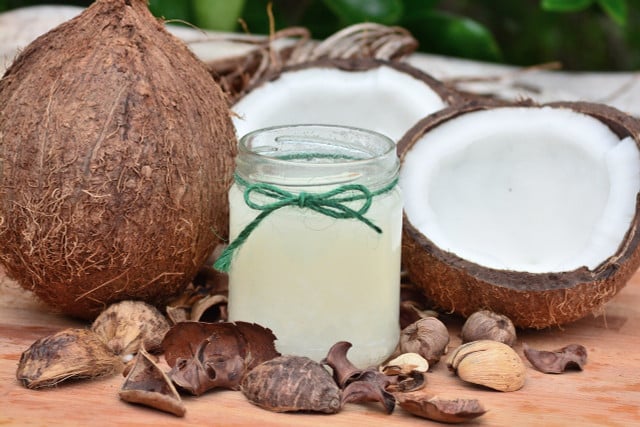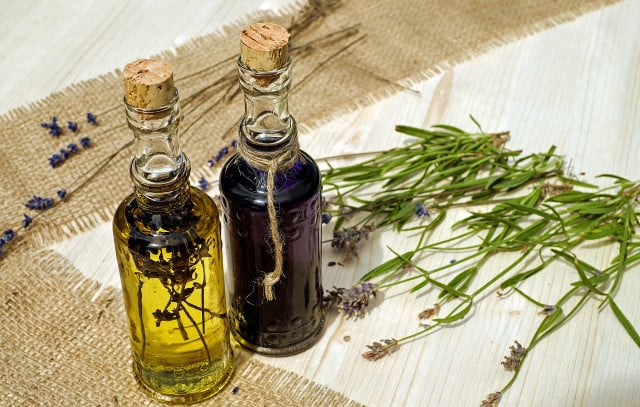
So-called oil pulling is said to detoxify the body and have a positive effect on oral hygiene and teeth. We reveal what you need to know about oil cures.
The principle of oil pulling is easy to explain: you put some oil in your mouth, move it back and forth in your mouth and then spit it out again. The procedure is intended to bind bacteria, keep the mouth healthy and also work against diseases. The cure has its origins in Ayurvedic teaching and has been practiced for thousands of years.
Oil pulling: mode of action and side effects

(Photo: CC0 / Pixabay / mlarsson62)
When you oil pull, you produce saliva by moving the oil back and forth. The increased flow of saliva is intended to absorb and bind bacteria and toxins from the gums and tongue. If you spit out the oil, you excrete them as well. In addition, teeth and gums should also be freed from plaque by oil pulling.
And oil pulling should not only help with oral hygiene: the oil treatment can supposedly even prevent diseases. Because the chewing and sucking movements are supposed to get the lymph going, which stimulates the immune system. This makes it more difficult for pathogens to penetrate the body via the mucous membranes.
According to Ayurvedic teachings, oil pulling should help:
- bleeding gums
- Caries
- bad breath
- arthritis
- asthma
- rheumatism
- migraine
- heart trouble
- bronchitis
- colds
However, the research on oil pulling is very thin. A review from India in 2021 examined research results that exist on the subject of oil pulling. The doctors came to the conclusion that oil pulling is not suitable as a supplement to conventional oral hygiene methods – but only because there are not enough studies on it. At the same time, it is noted that oil pulling can be used as a preventive measure to prevent dental problems. The doctors point out that a longer-term clinical study would be necessary for more precise results.
Scientific evidence for a detoxifying effect on the rest of the body is also lacking. According to the Austrian website Medizin transparent, however, the detoxifying effect of oil pulling contradicts scientific findings.
According to a 2015 scientific report, oil pulling with sesame oil can trigger the rare lung disease lipid pneumonia. Further research is needed here.
Instructions: This is how oil pulling works

(Photo: CC0 / Pixabay / moho01)
If you want to try oil pulling, you should do the oil treatment as soon as you get up in the morning, before you have eaten or drunk anything. You don’t need expensive special oil for this, but you can use different types of cooking oil, more on that in the last paragraph:
- Put a tablespoon of oil in your mouth (if you chose coconut oil, it will take a few moments to liquefy).
- You move the oil back and forth. You can chew it, pull it through your teeth, or suck it from cheek to cheek. The main thing is that it is constantly moving.
- The whole process should be relaxed and take about 15 to 20 minutes. If you don’t keep it that long, the cure can’t unfold its full effect. You can also try it for a few minutes at the beginning and then increase it.
- Spit out the oil. Since you bind toxins with oil pulling, you should not swallow or gargle with it.
- Don’t spit the oil directly down the sink—dispose of it over a tissue, for example. You can remove small amounts of oil with the residual waste. Also read: Dispose of cooking oil: where to put the expired oil?
- Then rinse your mouth thoroughly with water and spit it out.
- Then you can brush your teeth without toothpaste.
- An oil treatment should be carried out daily for at least four weeks.
The best oils for oil pulling

(Photo: CC0 / Pixabay / Couleur)
No matter which cooking oil you choose: Make sure that it is of high quality and organic. More sustainable are those that come from regional cultivation wherever possible.
Oil pulling succeeds with these oils:
-
You can get sunflower oil from Germany, it also has a mild taste. This makes it particularly suitable for oil pulling.
- Linseed oil is also considered to be particularly healing in the mouth and throat area. Since it has a rather bitter taste, you can mix it with sunflower oil in a 1:1 ratio.
-
Coconut oil not only tastes pleasant, but also has an antibacterial effect. Our oral flora in particular benefits from this type of oil – the disadvantage is its poor climate balance due to long transport routes.
- You can also use olive oil for oil pulling – but only in cold-pressed, native form.
Utopia says: The effectiveness of oil pulling has not been scientifically proven – but it can’t hurt. Side effects have so far only occurred extremely rarely. If you want to get an idea of Ayurvedic practice, you can simply try it out.
Read more on Techzle\.com
- Strengthen the immune system: 10 natural tips for better defences
- Proper brushing of teeth with sustainable means
- Coated tongue: These home remedies help with a white tongue
- Fluoride: important or toxic for healthy teeth?
German version available: Does Oil Pulling Work? What to consider